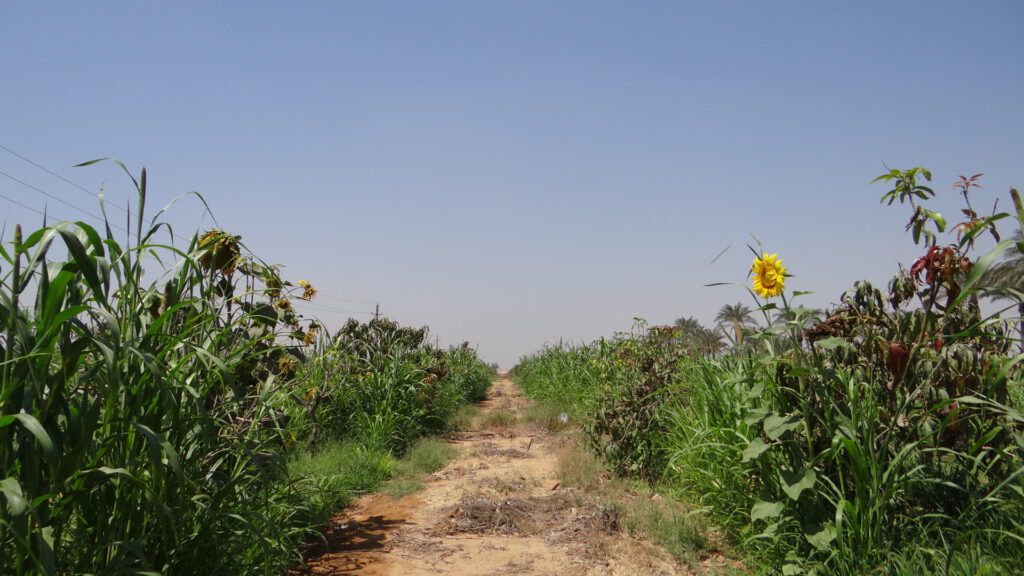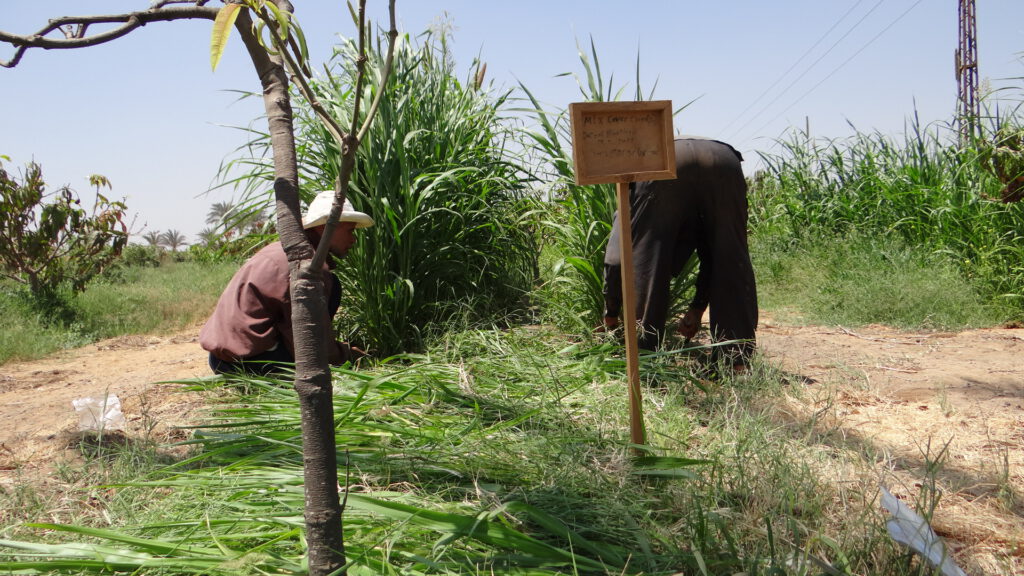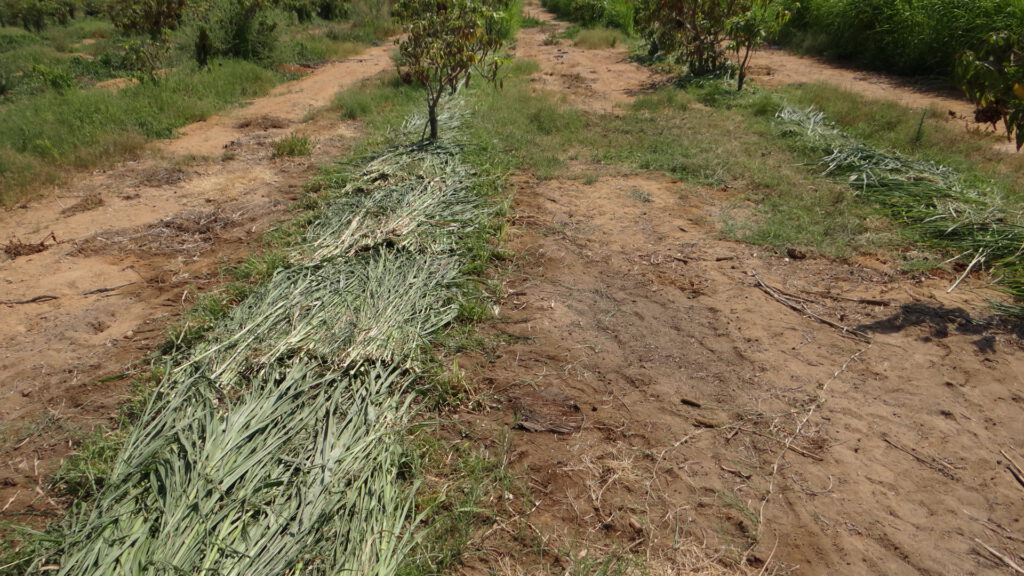For the DESALT farming project, Nectaerra began rebuilding soil fertility in deteriorated agriculture environments by growing cover crops, as was done the previous season. Nectaerra’s team of experts created a well-balanced variety of legumes, brassicas, grasses, cereals, and flowers specifically for arid regions. Drought resistance, rapid establishment, soil, and fertility building, and attraction to beneficial insects are all characteristics of the combination.

The main goal is to keep the land with living crops that will benefit the soil, the main crop, and the microclimate surrounding it. An increasing number of studies and field experiments have identified numerous cover crop benefits. We are ecstatic to provide you with further proof in the form of the results of the upcoming growing season. Thanks to all partners involved, MK Farm and all the Dutch consortium partners have worked together to promote sustainable agriculture in arid and salt-affected areas with the support of the Netherlands Enterprise Agency (RVO).
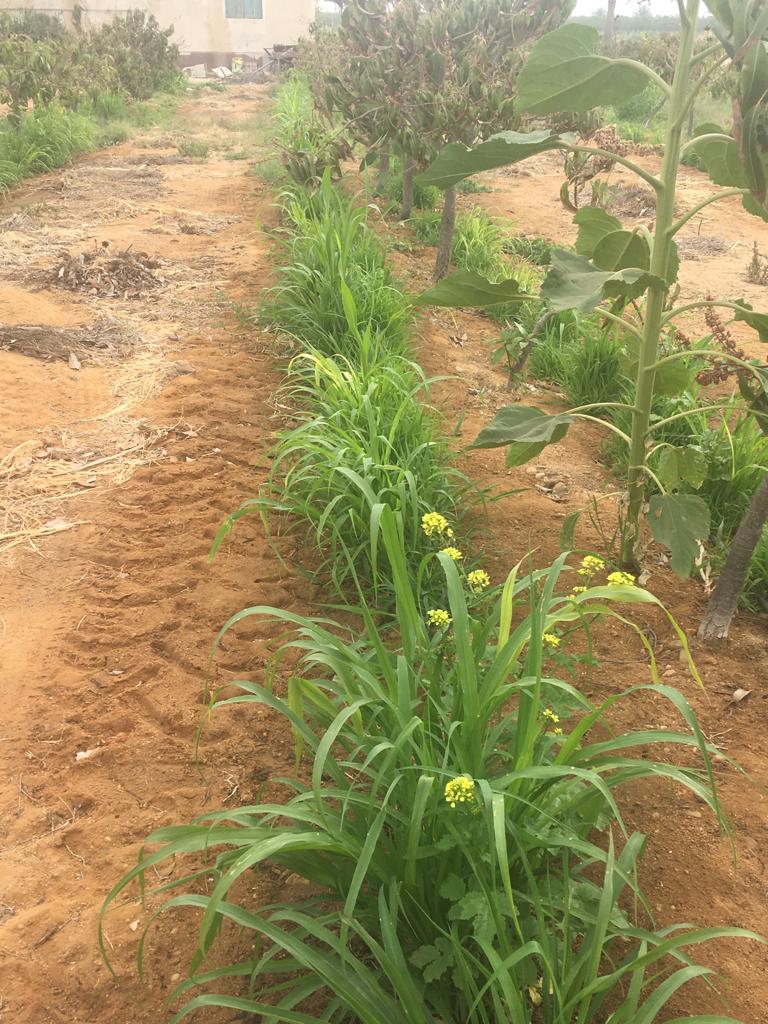
The photos below show another trial of cover crops in a mango farm conducted by Nectaerra and the team is installing soil moisture sensors to optimize soil-water crop needs.
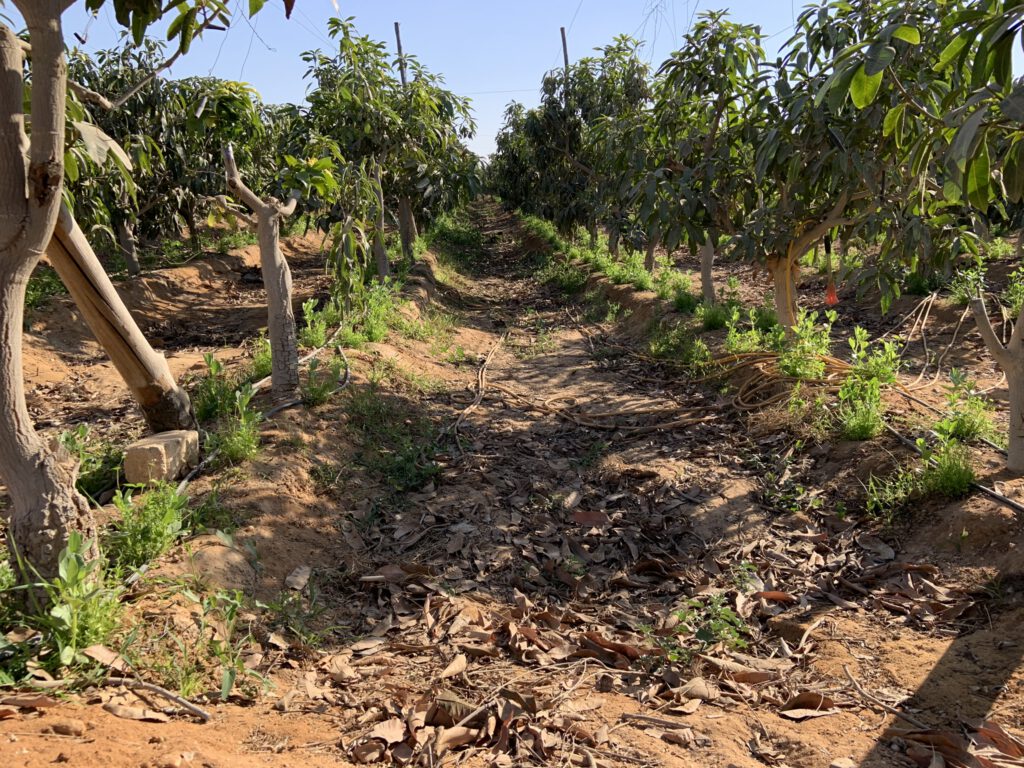
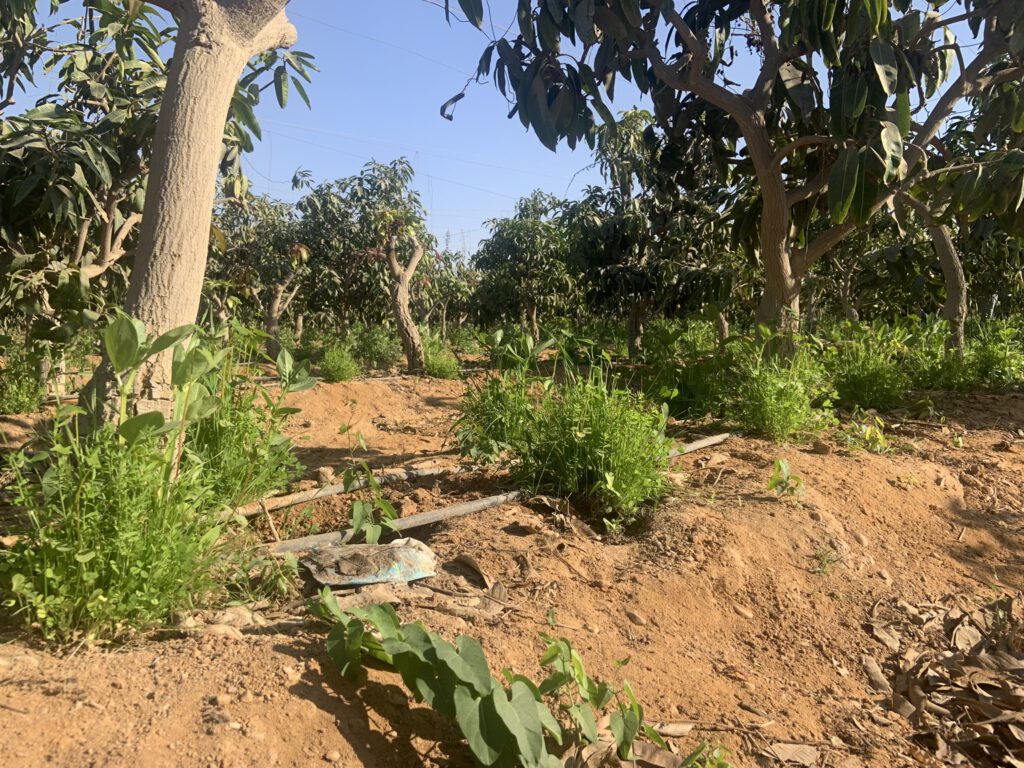
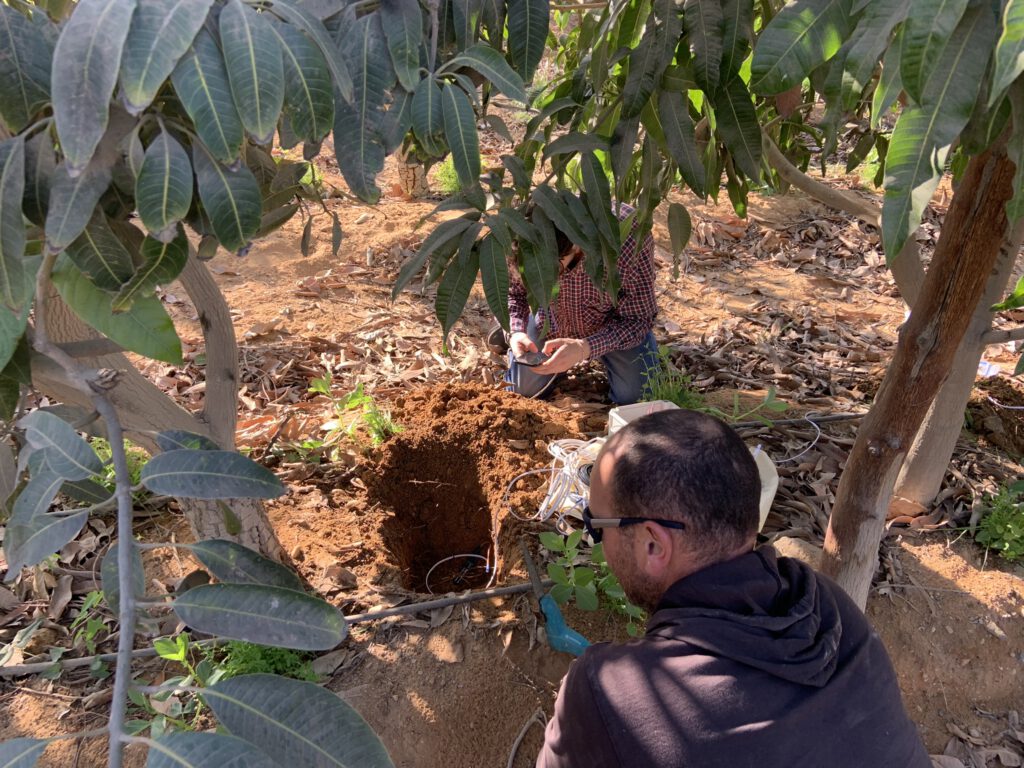
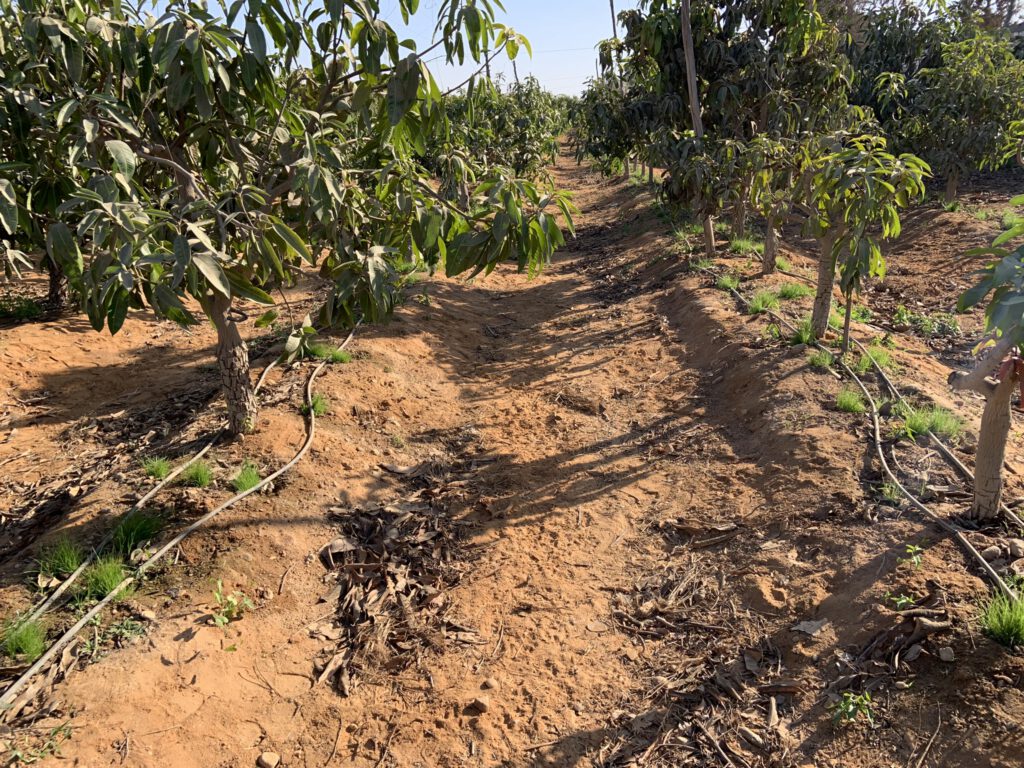
This trail of a cover crops mixture designed specifically for arid and drought conditions could protect these mango trees from the scorching summer sun, which farmers usually cover with pieces of paper, but in this case, the cover crops shaded the trees, saving the farmer money in addition to the microclimate improvements that helped the trees survive high heat waves. The cover crops improved the soil and soil water holding capacity, increased biomass, and saved water in harsh saline conditions, among several other benefits.
